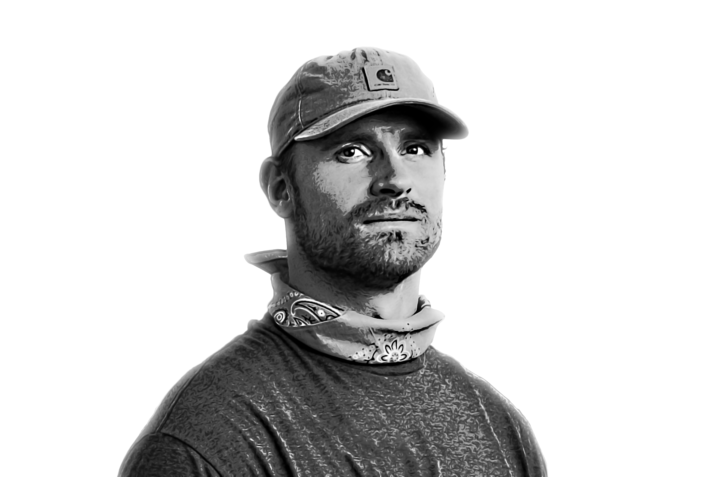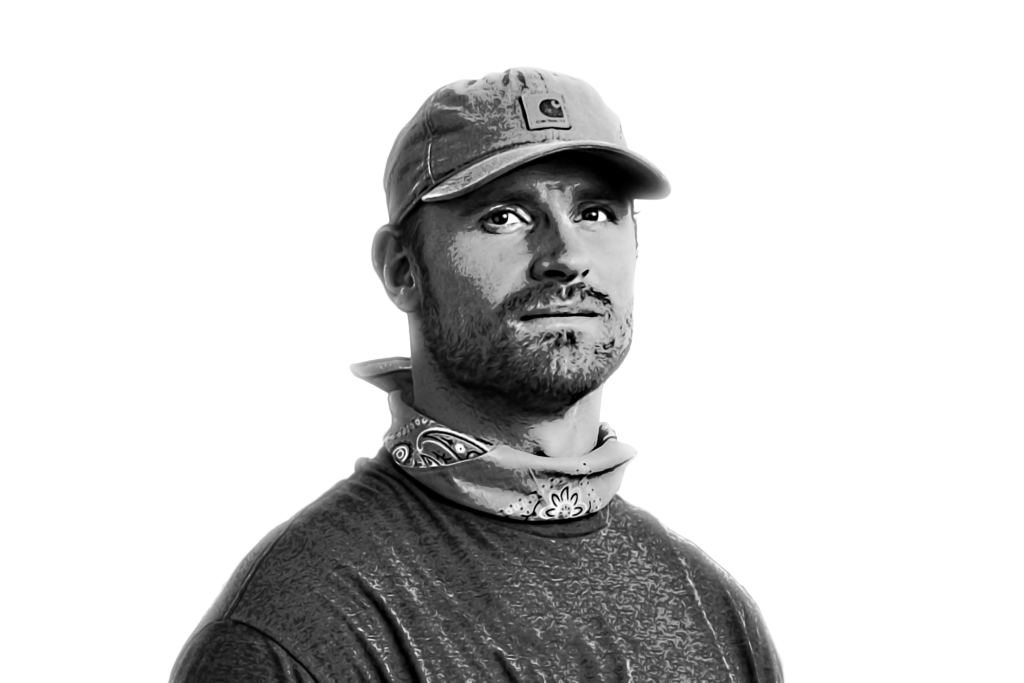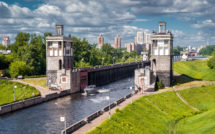

This is part of our special feature on Water in Europe and the World.
I confess: I know practically nothing about the National Football League (NFL). But I would have to be oblivious to the world around me not to realize that professional football players represent more than solely athletes exercising their talent. Around the world, famed sports figures are now public figures whose power goes beyond fields, swimming pools, tennis courts, gymnastics floors, ski slopes, or running tracks. Increasingly, in endorsing social and environmental justice causes dear to them, athletes recognize their potential as change agents. Able to utilize the visibility of their high-profile position to mobilize their supporters, they influence not only the society in which they live, but also far away societies through philanthropic activities abroad. The magnitude of financial capital flows in the sports industry undoubtedly opens pathways to concrete implementation when will is present. Star NFL player Chris Long exemplifies this growing phenomenon, which is echoed widely across the entertainment industry as athletes join actors and singers who likewise use their celebrity status to raise fans’ awareness about a host of domestic and global issues. Chris Long spoke with me about his passion for water. In 2015, he created Waterboys, driven by the mission of bringing clean water to populations in East Africa that have been deprived of that luxury – one often taken for granted in the Global North. Since then, the fundraising organization has already met significant successes at installing wells in villages. What struck me in my conversation with Chris Long is his humility, his full-on commitment to using his position as an influencer to make the world more livable for more people, his determination to be more than football stats and stadium memories for his fans, and his openness to adapting his initiative to needs, opportunities, and challenges (the “curveball”).
EuropeNow tells this story of philanthropy as a universally relevant illustration of the ways in which water advocacy can be articulated. Initiatives such as Waterboys stand as evidence of decentralized leadership around questions of access to vital resources, away from institutional and state actors whose project management life cycle exigencies may sometimes be too cumbersome to allow prompt (re)action in situations where each day means lives potentially lost. The advocacy and philanthropy model adopted by Chris Long, transferable to professional sports leagues globally, furthers the seventeen United Nations Sustainable Development Goals (SDGs), which were adopted by all 193 UN members as a holistic development blueprint for the planet. Explicitly advancing Goal #6 “Clean Water and Sanitation,” water advocacy stretches into other interconnected SDGs, from “Good Health and Education” (#3) to “Gender Equality” (#5), or “Life on Land” (#15), and more. Particularly pertinent is Goal #17 “Partnerships for the Goals.” Intended to “revitalize the global partnership for sustainable development,” it calls for collective and multi-partite solution-driven actions in which governments, the private sector and civil society all play a part to urgently “mobilize, redirect and unlock the transformative power of trillions of dollars of private resources to deliver on sustainable development objectives” (United Nations, Sustainable Development Goals). By casting light onto Chris Long’s philanthropic journey, EuropeNow emphasizes the need for a strong dialogue between various change-makers with distinct strengths, whether state actors, corporations, NGOs, personalities, or individuals like you and me.
—Hélène Ducros for EuropeNow
EuropeNow Why water? How did you come to be interested in potable water as a key resource? What triggered in you the desire to get involved in changing the situation of water scarcity?
Chris Long A lot happened by chance. I traveled to Tanzania in 2013 to hike Mount Kilimanjaro for fun. Coming down the mountain was a great experience. I was surrounded by rural areas and met so many wonderful people, but I also saw poverty on a scale I had not seen before. I identified the worst part of that reality to be the lack of water. Gradually, I learned more about how dire the situation is in developing nations and a few months later, once back in the US, I got to work with a friend of mine, Doug Pitt, who is a Goodwill Ambassador to Tanzania through WorldServe International and had worked on wells in East Africa. I was sold on the idea that this is the most efficient way to change the world. I also wanted to give back to that specific region because I had a great experience there. Efficiency is something I seek out. It’s measurable. It’s important for me to be able to show people the difference they are making and incentivize giving by making them understand where their dollar is going. Our model is based on large solar-powered wells. We communicate with people about a problem they may not have heard about before, and show them the progress we are making. We illustrate the problem by showing that water-borne illness is a leading cause of deaths among children under the age of 5, especially in Tanzania, where the numbers are staggering, but also globally. It jolts people. It gets their attention. The people we have told about it in the US get passionate about water because it is such a life-saving resource.
EuropeNow When you designed your organization Waterboys, did you need to pair up with other organizations on the ground in order to accomplish your goals?
Chris Long I knew people at WorldServe International from my playing days for the Saint Louis Rams, like Doug Pitt and John Bongiorno, who are from Missouri. This is when I first traveled to East Africa. So, the partnership between WorldServe and our initiative Waterboys was very natural. Waterboys was started in the NFL. It recruits influencers in different markets so we can accomplish more together by leveraging our platform and our resources to raise money and awareness. WorldServe is the working arm, while we are the fundraising arm with the platform and the microphone. We are all passionate about it. Along with Nicole Woodie, who runs my foundation, my job as the head of Waterboys is to think creatively about ways in which we can illustrate this problem and raise funds to implement our model of large solar solutions. WorldServe brings a wealth of knowledge in the region where they have been operating for over a decade, specifically in Tanzania. It is a very relationship-driven endeavor. We have to be selective about which communities need our help the most. Something as simple as getting the drilling rigs to the village community can present huge challenges, like in making in-roads, for example. We also need geologists to be able to gauge the amount of ground water and where it is appropriate to place the well. We need that knowledge and technology so we don’t end up with a broken or inoperable well. We also need to train people in the communities to take ownership of and maintain the water source. In the event something does break, we need to be able to communicate with people on the ground who are affiliated with WorldServe. It’s not as easy as it sounds to put in wells—you need partners. That is what we were able to find at WorldServe International.
EuropeNow How has being a star pro-athlete helped you accomplish your philanthropic and advocacy goals? How do you handle both aspects of your life?
Chris Long It works for me to run Waterboys and my foundation. My wife Megan is extremely supportive of what we do. It helps to have that support system around me, as well as the right staff, and to associate myself with the right players. As athletes, we have a visible platform and the resources to effect change. In some ways, if we don’t do that, we are wasting our careers. I have played professional football for eleven years, which is beyond the average career span of a football player. When it is over, you don’t have as visible a platform anymore, so it is important to take advantage of the potential as a change-maker. In the United States, everyone seems to be passionate about sports. However, clean water, water scarcity, and water contamination are not problems with which people are confronted, although it exists here more than people think. So, how do we make people not only think about it, but act on it?
EuropeNow How did you design Waterboys to respond to the problems you identified? What have been some accomplishments you are particularly happy about?
Chris Long Each well provides clean water for up to 7,500 people in the community. We are attached to the large solar-powered model because it is easy to explain to people and it is effective for large communities. We organize dinners and fundraising online and also work with churches to raise funds. And players donate. We have now funded 52 wells. That’s serving over 200,000 people who are drinking from our wells. It is not just improving their lives, it’s also improving the local economy and agriculture. Kids can spend more time in school if they are not sick. We are also tapping into a gender issue, since most of the burden of gathering often unclean water from distant places falls on women and girls in that region. Whatever the issue you are passionate about, there is something in clean water that will speak to you. I think that is why we have had so much success. It’s not just because we have players with popular names involved. We also bring people in to give their testimonies about the results it has brought to their lives. The clean water solution is very powerful. People realize this when we take them to Tanzania to a community where there is a well or where one is being built. We have raised a lot of money and over twenty NFL players and thousands of fans are involved. Fifty-two wells represent large sums since each well costs $45,000 to install.
EuropeNow You have had successes in realizing your goals of building wells in Tanzania. What have been some challenges you encountered in setting up the project?
Chris Long The number one challenge is the topic itself that we are trying to introduce to people. It is not on most Americans’ minds because it does not affect most of them in the way it affects people in the developing world. How do we not only convey a sense of urgency for humanity and our neighbors across the Atlantic and elsewhere, but also show that it is a problem that is already at our front door? The second challenge is learning on the fly and managing my time as an athlete with a very busy schedule: training, meetings, and building this project. For years, as a player, I was looking at other players bringing awareness to causes that were important to them. Now, I am the one trying to show to people that water is an important cause. I also want to give confidence to other players that their organizations will be efficient and successful.
Surrounding yourself with the right people can be a challenge. Nicole Woodie has been so important in building the organization and bouncing ideas with. Having an advisory council and surrounding yourself with people who have expertise in water is key—people who know about engaging TV audiences, and about being strategic about social media. We try to be very complete in our approach, and all these are very important aspects of what we do. And we also need to realize that even though we may have a plan, plans can change and we need to be able to hit a curveball. When I started Waterboys I had a specific vision. Looking back now, I can see that none of it worked. So, we have to be able to anticipate what might work and realize when it does not work. You cannot be married to your ideas; you have to be able to make adjustments.
EuropeNow Concretely, once your organization builds a well in a community, is there a system of follow-up to make sure it is operating like it should? Can you explain a little bit about the process on the ground? How do you select particular communities? Who do you approach there to get the project underway locally?
Chris Long People at WorldServe International identify communities that have the best potential for efficiently taking advantage of our wells. Some communities are very receptive to our ideas, but there is not enough ground water there; or sometimes our model might not work in a particular community. Working with local government can be a challenge. There are many others aside from selecting a stable environment in which to invest efforts and resources. The roads in Tanzania and East Africa in general are difficult, so transportation is an issue on the ground if we have to bring in drilling trucks. Sometimes the communities to which we want to bring help are hard to reach. It’s important to know our strengths and delegate when necessary. I am the fundraiser and WorldServe does the heavy lifting on the ground. They train villagers and people in schools so they can operate the wells responsibly and efficiently. They also provide training and communication on the ground to ensure that the entire community can use the well to its benefit.
EuropeNow More generally, what do you think is the role that professional sports can play in supporting social and environmental justice causes here or abroad? Do you think that activism, advocacy, and philanthropy are part of the professional sports culture?
Chris Long I think pro-sport is in the midst of a transformation. I would not call it a revolution, because we have not done anything that meaningful yet, but I think that athletes now have tools that they never had before. As our viewership and visibility go up, so too does our responsibility. Fans want to know more about players’ lives and what their personal interests are. So, I can show them something boring or I can show them something dynamic that I feel can change the world. Fans are so loyal that when a player gets behind a certain cause, they might look into it if they have never heard of it. With social media and the 24 hours news cycle, athletes realize the asset and support they have at their disposal.
EuropeNow Have you been able to connect with policy-makers at different scales, regionally or nationally or even internationally?
Chris Long Definitely. We talk to politicians in Tanzania. Recently here in the US, we spent a whole day with lawmakers talking about water solutions in the developing world, but also trying to ramp up our efforts to raise awareness domestically about conservation and policies that affect our clean water supply and water scarcity. We think it’s important for people to have information. My goal is also to get a domestic awareness campaign going and to hold lawmakers and our government accountable so we can avoid certain issues like Flint, for example.
EuropeNow Have you been in conversation with the academic world, with schools and universities, or with large foundations, like the Bill and Melinda Gates Foundation, which is very active around the topic of water?
Chris Long We would like to get more involved with students. I spoke in a class at the University of Virginia (UVA) in Charlottesville where I live. We also talked to other schools to get college football involved, which would be a great way to engage younger people. We have not talked to large foundations such as the Gates, but I admire their work. We are still a very young initiative. We are gaining momentum and focused on continuing to make as much change as we can. We are always listening to people who come to us and we are open to synergies. We look for those synergies in different ways. For example, we have corporate sponsorships. We are also expanding to the National Basketball League (NBA) to try to duplicate our model there with Michael Brogdon who played at UVA where I went to school. We approached him and he recruited other NBA players. I think there is an opportunity for this model to expand to other sports’ leagues with the right leadership and persons involved.
In addition, in collaboration with Ohio State University, Waterboys and WorldServe were awarded a $1M Water and Development Alliance (WADA) project in Tanzania. WADA brings together Coca-Cola and USAID. They partner with communities and their governments to address challenges and harness opportunities connected to water. Joining together Coca-Cola’s business capabilities with USAID’s development expertise helps to create solutions that develop communities, grow stable economies and strengthen resilient environments. We pledged to match the USAID – Coca Cola funding with a $1M donation. Allowing our team to install more solar-powered wells, these funds have the potential to impact more than 70,000 lives in Tanzania through sustainable access to water in villages that are on the Ministry of Water and Irrigation’s Critical Water Needs list.
EuropeNow Personally, what does this work bring to your life?
Chris Long More than anything, it makes me feel like we are making a positive impact through our work. You don’t have to be an influencer or be on TV to want to make a difference in the world. I am not perfect and I may not be the best football player either, but I can control my efforts at changing society with the platform I have. Having a cause I am passionate about makes my career more complete and more worthwhile. Playing football is not enough; I want to have a bigger impact. In athletics you can’t control the outcome all the time. But you can work as hard as you can to make the impact that you’d like to make.
EuropeNow What do you envision for the future of your organization? What sort of projects do you have in mind to continue your action? Are you planning on expanding to other realms of action besides Tanzania and additional wells?
Chris Long We had talked about other regions, like Kenya, where WordServe has also worked. We first wanted to focus on one place and we are now expanding on the African continent. Our 49th well is actually going to be in Kenya. But I would also be very excited about opportunities to make changes in Central America. As I mentioned before, we are also interested in working domestically in the US to introduce people to these issues. It is easier for people to empathize with local problems when they first hear about issues. We have other projects too. Every year we bring together retired football players and military personnel who have served and we climb Mount Kilimanjaro to raise money for clean water. We will do this again this year, so I will soon start planning for it. When these folks go home, they talk about what they have seen, what we have done, and how dire the needs are. As we hear from players about regions they are passionate about, we also have to listen to them. If a player has a great following, wants to get involved, and tells me he is passionate about a place he visited, I would say let’s find a partner and let’s do it! We are always open to expanding.
EuropeNow I am sure that doing what you do requires you to remain optimistic. But what is your outlook on the issue of global water scarcity? And has addressing water issues led you to be interested in other challenges you would like to do something about?
Chris Long My philosophy is that you cannot solve the world’s problems alone. You can only try to work faithfully and hope to be that catalyst that raises awareness and jolts people into caring enough. There is definitely use in educating kids about this problem. You never know who the next Bill Gates is. The next generation is going to be standing at that crossroad where they can decide to solve a very dire situation. We hope to inspire the next change-maker. It does not necessarily have to be me or us, but we hope to bring positive energy to the process. If people are saving just one life, that’s worthwhile to us. Hopefully we have done that many times over.
I look at clean water as a major way that we can solve problems in the developing world. It’s transformative for communities because it addresses more than water. I look at education the same way. My wife and I have funded high school scholarships. Last year we ran an initiative called Pledge 10. With the help of fans we were able to raise 1.75 million dollars for several education equity programs in the cities where I played. This year we are doing a literacy drive with a “Read by 4th grade campaign” in partnership with the United Way and Read By 4, which is based in Philadelphia. There are many problems and not enough time to solve them all, but you do the best you can.
Chris Long is an NFL player who plays for the Philadelphia Eagles. Long won back to back Super Bowls in 2016 and 2017 as a member of the New England Patriots and Philadelphia Eagles, respectively. He was drafted by the St. Louis Rams in the first round of the 2008 NFL Draft, and is the first and only active University of Virginia football player to have his number retired. In parallel to his football career, Long started Waterboys in 2015 to address clean water scarcity. It is the hallmark initiative of the Chris Long Foundation, which supports underserved youth, military members and veterans, and the homeless community.
Hélène B. Ducros holds a degree in Law (JD) and PhD in Human Geography from the University of North Carolina Chapel Hill. She is Chair of Research and Pedagogy at EuropeNow.
Published on December 11, 2018.




